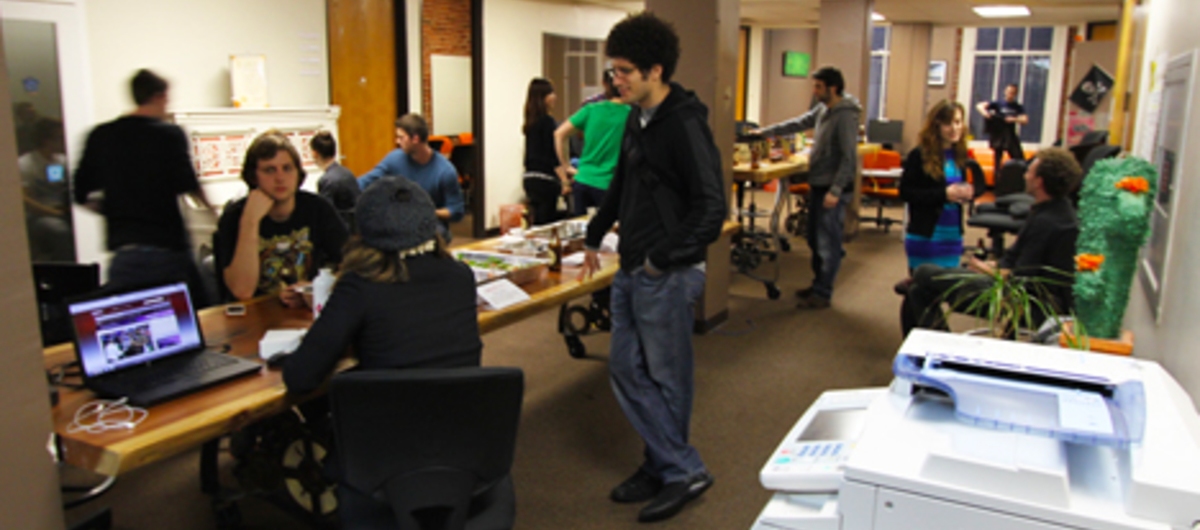This is a guest article from Steve King & Carolyn Ockels, Emergent Research:
Weak ties generally connect people who move in different social or business circles. Because of this, they tend to have different information sets - things you don't already know, or aren't aware of, or new ways of looking at things.
It's not that strong ties (close friends, business associates, etc.) aren't good at providing information. They are. But because they are strong ties, you are likely to already know much of what your regular social network knows. You are also likely to share similar points of view and approach things in similar ways.
Over the last 9 months we've interviewed close to 100 U.S. coworking facility members as part of our ongoing Voices of Coworking project. This research is focused on better understanding why people cowork and which benefits they reap from being members of coworking facilities.
One of the key findings of this research is that coworking members tend to see an increase in the size and usefulness of their weak tie business networks. There are three main reasons for this:
1. Coworking exposes members to new people and new experiences, expanding their weak tie network
The vast majority of the coworkers we interviewed described meeting and interacting with other members of their coworking facilities both socially and for business purposes. This is not a surprise - most coworking facilities have a mix of programs designed to encourage community interaction (events, lunches, social gatherings, etc.).
These casual events, coupled with direct networking among the members themselves, results in larger weak tie networks. The biggest increase comes from interacting with other members in a coworking community. On top of that, coworking events and social programs also expand weak tie networks by bringing in new people who may not be members.
2. It's easier to tap coworking-based weak tie networks
Because connections to weak tie network members are by definition weak, they are often hard to reach and tap. Coworkers, however, understand that networking is part of being a coworking facility member. This means they are, for the most part, open, interested and willing to network with other members. Coworking members are also often co-located. These two factors make it much easier to tap these weak ties than other weak ties.
3. Community managers foster weak tie networking
Most coworking facilities have a community manager who helps connect people. Because community managers have a strong sense of the activities of community members, they are in a position to make more relevant connections. Members can also ask community managers for help networking, again increasing the likelihood of useful connections.
Because our research was qualitative, we can't fully quantify the weak tie impacts of coworking. Most of those interviewed talked about making 4 to 7 useful new business connections- and many more social connections - through their coworking facility.
Echoing this data, the Deskmag Global Coworking survey reports that 80% of coworkers said their business network had grown and the average coworking member "had met 3.6 useful new acquaintances in the past two months." That our qualitative field work and Deskmag's survey both found coworking leads to larger business networkers is strong evidence the effect exists.
The expansion of business oriented weak tie networks is a powerful benefit of coworking. Home-based independent workers (freelancers, consultants, etc.) in particular report struggling to build and grow business networks. Coworking, due to their communities and the collaboration they foster, is one solution to this problem.
:::
Links:
The Strength of Weak Ties (PDF)
Interpersonal Ties (Wikipedia)
Mark Granovetter (Wikipedia)








